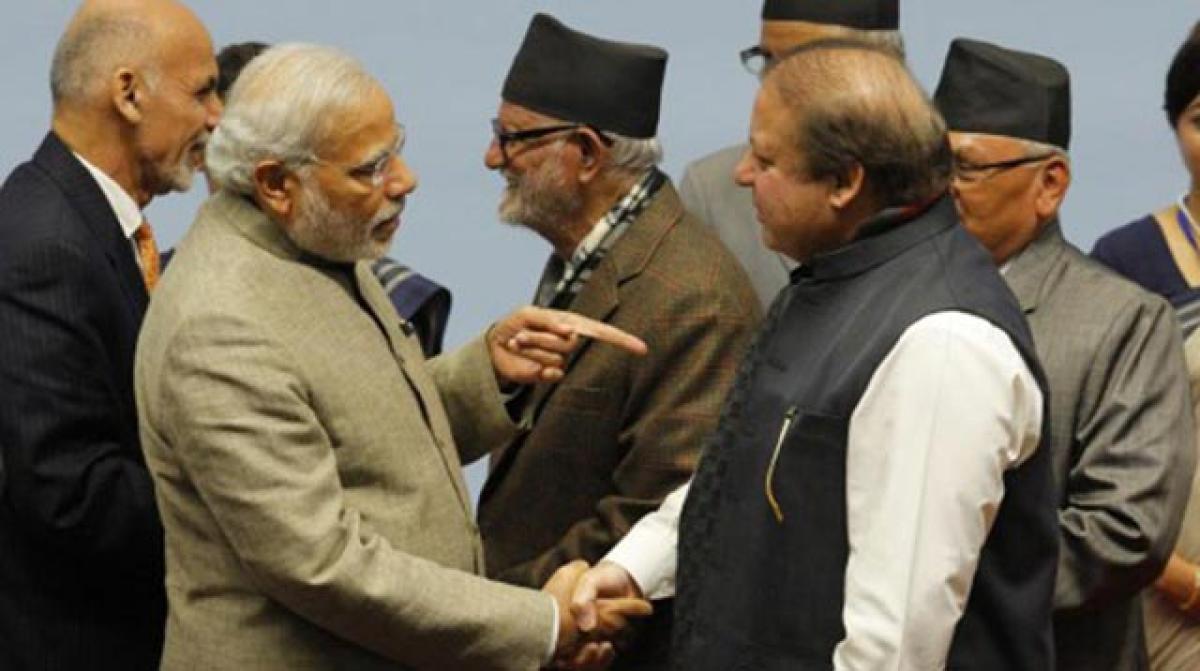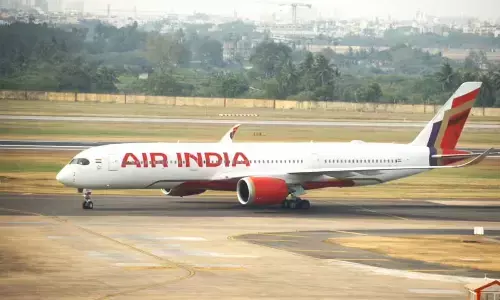MFN status-advantage for India

The Indian sub-continent was an integrated market till 1947. Partition and consequent irresponsible Pakistani behaviour has led to its virtual isolation.
The Indian sub-continent was an integrated market till 1947. Partition and consequent irresponsible Pakistani behaviour has led to its virtual isolation. Sabre-rattling Pakistan is imposing heavy penalties on its population as their miseries are increasing, has rightly noted Indian Prime Minister Modi. The surgical strike in Pakistan-Occupied Kashmir should make Islamabad rethink and correct its stand on bilateral ties.
The distrust and jingoist Pakistan has led to a thaw in easing relations. There is, however, a growing consensus among Pakistani academicians and economic historians that the volume of trade with India should increase. Even as India is considering withdrawing the most-favoured nation (MFN) to Pakistan, trade is growing. India had granted MFN in 1996 but Pakistan hasn’t still. Even without the MFN status to India, exports to Pakistan have risen from $287 million in 2003-04 to $2.17 billion in 2015-16. Imports to India have risen from $58 million to $441 million.
The balance of trade during the past 12 years has remained favourable to India, according to a study done by the Indian Council for Research on International Economic Relations (ICRIER). It estimates an increase in India’s trade potential to $11 billion - exports $ 7.9 billion and imports to $ 3 billion - in the next few years.
The Institute of Public Policy, Beaconhouse National University, US in a major study which included Shahid Kardar, Governor of State Bank of Pakistan, noted in 2012, that India’s exports to Pakistan in the next few years will grow to $6.3 bn. Pakistan’s exports to India in the medium-term are projected to increase to $1.3bn.
Kardar states: “Our analysis shows that India has ostensibly opened up its trade regime for products from Pakistan through a reduction in the number of items on its sensitive list”. However, he adds that the concession is less liberal than it appears.
Trade liberalisation with the granting of MFN status to India, the implementation of tariff reductions under South Asian Free Trade Agreement (SAFTA) and the induction of structural reforms in Pakistan is projected to push up its GDP in the medium-term by a ‘moderately favourable’ 1.5 per cent to a healthy four per cent, says Kardar. India has reduced more sharply its sensitive list for Bangladesh and signed an FTA with Sri Lanka.
Pakistan has also been found discriminating in allowing Indian exports to Afghanistan. While it allows the Afghan trucks to carry its exports to Indian borders, Islamabad does not allow them to carry back Indian goods. Afghanistan has repeatedly protested this as it causes escalation of prices.
Irrational and unstable Pakistani policies have blocked easing of relations in the region. Pakistani academicians say that it is in the mutual interest of the two countries to strive for an enduring uninterruptible long-term relationship.
The Federation of Pakistani Chamber of Commerce and (FPCCI) and regional chambers feel that the fears being raised by certain circles in the country on the MFN status to India is not based on facts. It feels that despite some hitches in the beginning Pakistan is to gain more.
Sectors such as textile and automobile industry, leather manufacturers, garment manufacturers, pharmaceutical manufacturers will be involved in the concessionary tariff. “Pakistans's industry will squeeze if India decides to withdraw the status. Diplomatically it will be a good step to isolate Pakistan”, international trade expert with Indian Institute of Foreign Trade (IIFT) Rakesh Mohan Joshi said.
Exporters body, Federation of Indian Export Organisations (FIEO) said that India mainly exports inputs to Pakistani industry such as basic chemicals and cotton, which is vital for their industry. “Their industry will face issues if India stops these exports. Their cost of manufacturing will go up”, FIEO Director General Ajay Sahai says.
Nothing prevents India to withdraw the MFN status. As per World Trade Organisation, since Pakistan has not accorded the MFN status, it can be withdrawn by India. Pakistan, however, wants to make it an issue.
Pakistan’s agriculture and automotive sectors have often lobbied against MFN status, arguing that these are still too young to compete with the onslaught of cheaper Indian products. The truth is that Pakistan’s industries will never be able to compete if the government continues to protect them with high tariffs and other non-tariff measures.
Pakistan imports 57 per cent of its auto-related raw materials from Japan, contributing to large import bills. A continually rising cost of production ensures Pakistan will never attain economies of scale, and eternally nascent industries continue to enjoy protection at the expense of consumer welfare.
However, Pakistan’s current stance has significance beyond the MFN status, domestic interests, or bilateral trade. For years Pakistan insisted on negotiating trade with non-trade issues. As a consequence, talks have remained intermittent, largely governed by the unresolved political animosity between the two countries. Pakistan’s move to bring back the Kashmir issue only ensures that India will be unyielding to any firm commitment and economic cooperation.
Though economic and political issues cannot be mutually exclusive, holding one issue hostage for another is counterproductive. The trade between the two countries may marginally benefit India, but an end to it would cause severe difficulties for Pakistan. The losses that India would suffer, it can make it up with alternate markets in the region. (INFA)
By Shivaji Sarkar

















